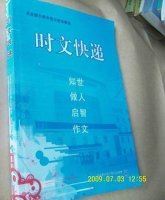摘要:在深圳,30多个外来工联名上访争取“夫妻生活权”,引起了不小的反响。本文描述了外来工夫妻房欠缺的事实,同时给出了解决夫妻房问题的比较好的例子和建议。
Sex and the City: Migrant workers’ dilemma in China
The news that 30 married migrant workers in a factory in Shenzhen wrote a letter to a local newspaper to claim the right to live with their wives was a big story across China several weeks ago. In short, Chen Qiang (an alias), who wrote the letter on behalf of his colleagues, claimed that prior to 2004 workers were only allowed to spend two nights every month outside the factory grounds. Workers were in effect confined to quarters. Married workers could meet their wives only twice a month and could not therefore spend time with their wives. After protesting to the factory, the workers were finally allowed to sleep outside once per week. However, young couples especially complained that this was not enough.
Although the sex lives of migrant workers have been the subject of concern for some time (mainly by journalists), Chen’s letter was the first time migrant workers themselves had publicly stated that they also need sex, just like everybody else. The issue is not insignificant. There are more than 7 million migrant workers in Shenzhen alone, and 35% of them have been joined by their wives or husbands. However, although they live in the same city, married couples are often forced to live separate lives. Typically, married migrant couples do not have the resources to rent or own their own house in one of China’s most expensive urban environments. To save what they can of their limited wages, couples most often live in different dormitories in different factories.
They can usually only meet briefly on weekends, but only if there is no overtime. The most common solution is to pay for a cheap hotel room (so-called hourly hotels where rooms can be rented by the hour) so they can have some privacy.
However, there is a larger issue at stake than sex here. Is sex really the only missing ingredient in the lives of migrant workers? If it is, then cheap hourly hotels alone will solve the entire problem. However, like most people, migrants don’t just want sex; they need to feel affiliated with others and to be loved. Migrant workers need a home or a place of their own. They need to be able to hug their partners, maintain relationships and have family lives.
The problem here is far beyond a need for sex (although this is most often what the media have focussed upon and what much of the commentary about Chen Qiang’s letter was intent upon analysing).
However, the point of Chen’s letter was not just the inability of couples to have sex frequently enough; it was that workers were not allowed to sleep outside of the factory and be part of a family unit. However, a common aspect of Chinese management is that employees should not sleep outside the factory. Even university students are not allowed to sleep outside their dormitory.
Most Chinese people do not see prohibiting employees or persons for whom one has responsibility from sleeping outside dormitories as a form of discrimination; nor is it seen as a human rights issue. Many managers link increased productivity with dormitory living. They also believe that workers will be safer if they stay in the dormitory under the protection of factory-hired security guards.Times, however, are changing, particularly in the south and in the Pearl River Delta in particular. Many factories do allow workers to live outside now, but the problem in such circumstances is that it is not always easy for them to rent an affordable place. In big cities where many migrant workers live, housing expenses are extremely high and not everybody can afford to move out of the dormitory even if they are allowed to. For example, a decent small room (30 to 40 square metres) in Shenzhen costs at least 500 yuan per month in the inner zone, and 200 to 300 yuan in the outer zone. Couples will sometimes share apartments with others and so reduce costs.
However, the minimum wage in Shenzhen is 610 yuan per month (as of June 2005), and 480 yuan (as of June 2005) in the second zone. Migrant couples living together will have to spend more than a third of their wage on a room. Given that many workers want to save money for the future and/or send money back home, it is not surprising that they balk at spending so much money on housing. Moreover, some factories deduct dormitory fees from workers’ wages no matter whether they live in the dormitory or not. Workers are thus unwilling to double on paying rent.
However, it is not only an issue of money. Safety is also a big problem in low rent neighbourhoods. Places where migrant workers gather often face security problems. Workers need to take good care of their belongings as well as their personal safety. Moreover, cheap neighbourhoods can be noisy at night and are obviously not good places for rest after work.
The problem of providing cheap housing in cities for migrant workers is difficult to solve, but it is not impossible. The question is who can make decisions that will make a positive difference? According to some factory owners, it is too expensive to construct dormitories for couples.
Recent news stories suggest that others believe that it is all about the inpidual’s private life, and factories should not interfere too much. Nevertheless, despite these objections, a good project should benefit both the workers and management, and it should be sustainable. Below are some successful examples where management has provided both accommodation and other facilities for workers and married couples.The Ruiji Handbag Factory is located in the town of Longgang, Shenzhen. It supplies Wal-Mart, Sony and GE. Management has invested over 5 million yuan to build 168 private rooms for married workers. All such rooms are equipped with television, telephone and solar hot water systems. The factory also invested another 2 million yuan to build entertainment facilities, such as a library, theatre, and basketball courts for all workers.
Married couples need pay only around 180 yuan per month to live in a private room. Workers with relatively low but stable wages do not need to pay for the rooms at all. The company was the only private enterprise to be certified by the All China Federation of Trade Unions as a “National Model Home for Workers” in 2003. As you might expect, workers are not the only ones that benefit from better facilities and dormitories. The factory manager stated that the migrant labour shortage – which has seen some factories in the area lose up to 50% of their workforce – has had no influence at all in the retention of staff. Due to continual improvements, some workers have been with the factory since it was established 22 years ago. Workers have brought their friends from their hometowns to work there, and management does not actively recruit workers any more.
Some might argue that Ruiji is a rich factory, and can therefore afford to allocate resources to its workers (especially married couples). But what about smaller factories with thinner profit margins? A company in Fenghua, Zhejiang, shows that factories don’t need to be wealthy to provide cheap but decent dormitories for migrant workers. The Libang Investment Company, although not providing private rooms specifically for married couples, only charges 18 yuan/month for a bed in its dormitories. The company not only provide dormitory rooms but also catering and entertainment services. By providing these extra services, Libang has accrued certain benefits. On one hand, it has derived some free publicity via stories in the local media and earned some profit. On the other hand, migrant workers have acquired rooms and entertainment facilities nearby for very cheaply. Despite not providing married quarters, the project has shown that factories can provide safe and sustainable accommodation for modest outlays, and has provided a model for other small factories. If small factories in the same area can band together and outsource accommodation to at third party (who can also provide private rooms for couples), then both workers and factories would benefit.Although management believes that keeping its factory workers in dormitories will increase productivity, it is actually not well documented. A Thai labour researcher recently told me at a conference that it is actually more beneficial if workers live outside the dormitory, which is why many factories do not provide dormitories any more in Thailand. If this is also the case in China, managers might be making a mistake by forcing employees to live inside factory compounds.
Providing decent housing for migrants is not just in the hands of private companies; government also plays an important role. The Ministry of Construction, for instance, put the migrant workers’ housing problem on this year’s agenda earlier this month. However, it seems that the housing problem for migrant couples will be solved by private-public partnerships and that the migrant labour shortage will boost conditions in some areas. For instance, it’s no uncommon to hear nowadays of factory owners promising free private accommodation to attract married workers. This is good news for migrant workers. For them, the city can be a desirable place if they have their loved ones with them.

 爱华网
爱华网



